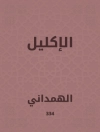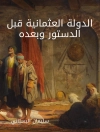Life in the German Democratic Republic was a permanent balancing act between conformity and revolt. Political pressure and an economy of scarcity coexisted alongside the more pleasant and seemingly idyllic aspects of everyday life. Stefan Wolle takes these contradictory images of a now defunct world and weaves them into a coherent picture. He shows that the meticulously kept death strip at the border and lovingly tended allotment gardens were two sides of the same coin, that dictatorship and daily life necessarily went hand in hand.
Wolle tells the history of the last two decades of the GDR from the inside out, as the collective biography of its inhabitants. The result is a thoroughly researched and ambitious scholarly work that doesn’t shy away from radical subjectivity. He describes the attempts of East German citizens to create a modicum of intellectual and spiritual freedom, takes stock of the shattered dream of a human, democratic socialism, and reclaims the multifaceted lives of those who lived under Communist Party rule.
Originally published in 1998, this seminal history of everyday life in East Germany is now available for the first time in English.
关于作者
Jahrgang 1950, Studium der Geschichte an der Humboldt-Universität zu Berlin, 1972 Relegation aus politischen Gründen, Arbeit in einem Produktionsbetrieb, nach einem Jahr »Bewährung in der Produktion« konnte er sein Studium fortsetzen, 1976-1989 Mitarbeiter der Akademie der Wissenschaften der DDR, 1984 Promotion, 1990 Mitarbeiter des Komitees zur Auflösung des Ministeriums für Staatssicherheit, 1991-1996 Assistent an der Humboldt-Universität, 1996-1998 Stipendiat der Deutschen Forschungsgemeinschaft, 1998-2000 Referent bei der Stiftung zur Aufarbeitung der SED-Diktatur und bis 2005 Mitarbeit im Forschungsverbund SED-Staat der Freien Universität Berlin, seit 2005 wissenschaftlicher Leiter des DDR-Museums Berlin.












